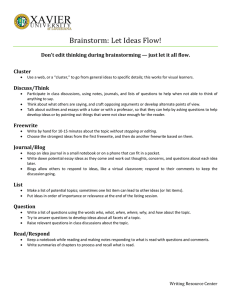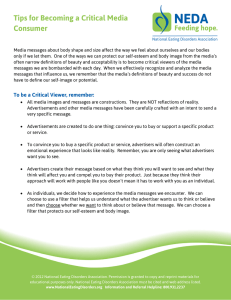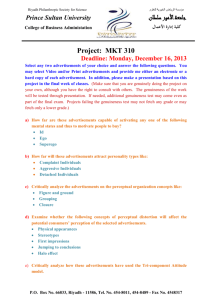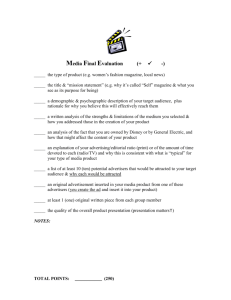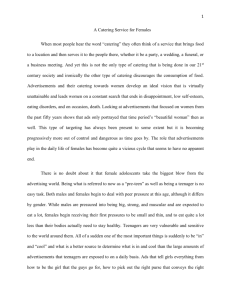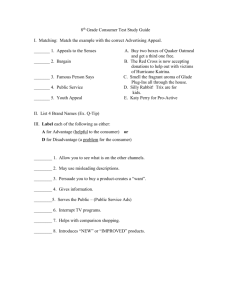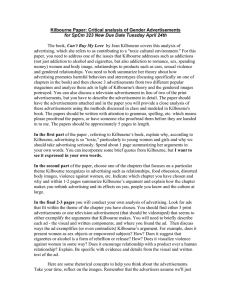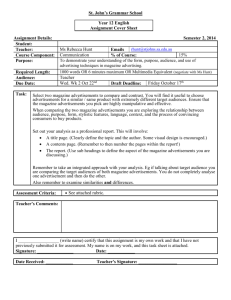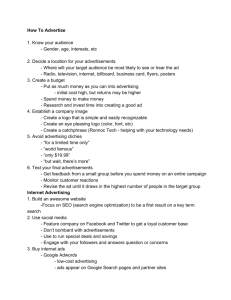Martinez Maybe It's Maybelline, Maybe It's Photoshop For several
advertisement
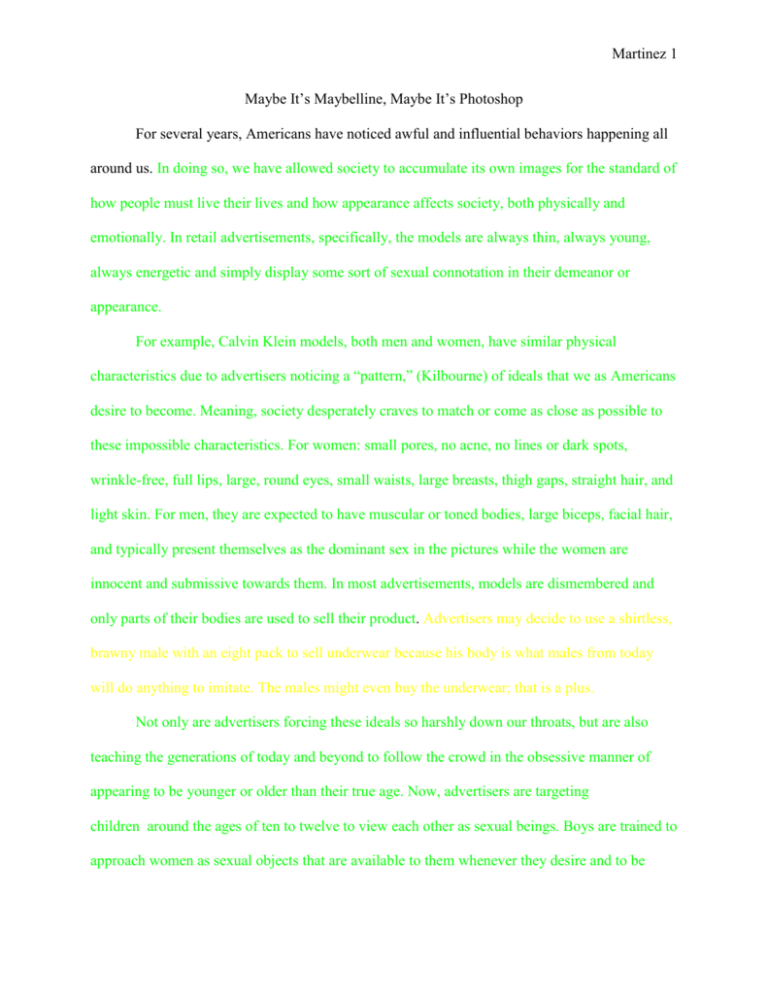
Martinez 1 Maybe It’s Maybelline, Maybe It’s Photoshop For several years, Americans have noticed awful and influential behaviors happening all around us. In doing so, we have allowed society to accumulate its own images for the standard of how people must live their lives and how appearance affects society, both physically and emotionally. In retail advertisements, specifically, the models are always thin, always young, always energetic and simply display some sort of sexual connotation in their demeanor or appearance. For example, Calvin Klein models, both men and women, have similar physical characteristics due to advertisers noticing a “pattern,” (Kilbourne) of ideals that we as Americans desire to become. Meaning, society desperately craves to match or come as close as possible to these impossible characteristics. For women: small pores, no acne, no lines or dark spots, wrinkle-free, full lips, large, round eyes, small waists, large breasts, thigh gaps, straight hair, and light skin. For men, they are expected to have muscular or toned bodies, large biceps, facial hair, and typically present themselves as the dominant sex in the pictures while the women are innocent and submissive towards them. In most advertisements, models are dismembered and only parts of their bodies are used to sell their product. Advertisers may decide to use a shirtless, brawny male with an eight pack to sell underwear because his body is what males from today will do anything to imitate. The males might even buy the underwear; that is a plus. Not only are advertisers forcing these ideals so harshly down our throats, but are also teaching the generations of today and beyond to follow the crowd in the obsessive manner of appearing to be younger or older than their true age. Now, advertisers are targeting children around the ages of ten to twelve to view each other as sexual beings. Boys are trained to approach women as sexual objects that are available to them whenever they desire and to be Martinez 2 “sexually precocious,” (Kilbourne) at young ages. Whereas, girls are expected to hold poor standards for themselves and to be “ incredibly thin and beautiful and hot and sexy and they are going to fail,” (Kilbourne). The most dangerous element of manipulating both sexes in the media to sell merely a product is how society has began to normalize dangerous attitudes associated to the ethical violation of alienating and exploiting the body for display. While advertisements for men are not as personal and related to the body as they are for women, it still continues to be dangerous because of its nature in leading into violence. Women are faced to survive in an environment where how they dress and appear may increase their chances of rape, harassment, intimidation or physical abuse. By adapting to the norm of beauty images, society is inviting hazardous attitudes to play a part in how we view ourselves and others when we buy a pair of jeans. While there are groups and organizations that speak out against the beauty standard, most are too intimidated or fainthearted to fight the man. As a young woman in the same age range who, too, suffers from the withdrawal of not adapting to the impossible size and shape, I consider it to be a disservice to those younger than I who do not know better to ignore slandering advertisements and keep their heads held high. Women suffer from depression, anorexia, bulimia and even lead to suicide because of how badly they dream of being thin enough. According to a statistic from the National Institute of Mental Health, “eating disorders affect both genders, although rates among women and girls are two and a half times greater than among men and boys,” (NIMH). Therefore, while it is blatantly obvious that advertisers are attacking children with ridiculous expectations, it may not be so obvious to an oblivious mother shopping the sales at Ralph Lauren for her son’s first day of school. We need to take into consideration what our actions represent and how our words affect us and Martinez 3 others when making the decision to buy fast food or cook from home. It is our money we use to purchase their products that sends support to corporations and envelopes them in the idea that we are ‘satisfied’ with their demeaning advertisements. The first step is to educate our society in how harmful this unrealistic type of advertising is affecting us. Photoshop will continue to construct artificial work to design smaller, thinner, and lighter skinned models until we say, ‘we refuse to buy your products’. Companies that develop advertisements that expose flaws and humiliate their consumers will eventually lose business once the cash flow comes to a strong hault. As society progresses, people will soon come to realize that embracing their own positive self image is what will truly make them confident and comfortable in their own skin.
